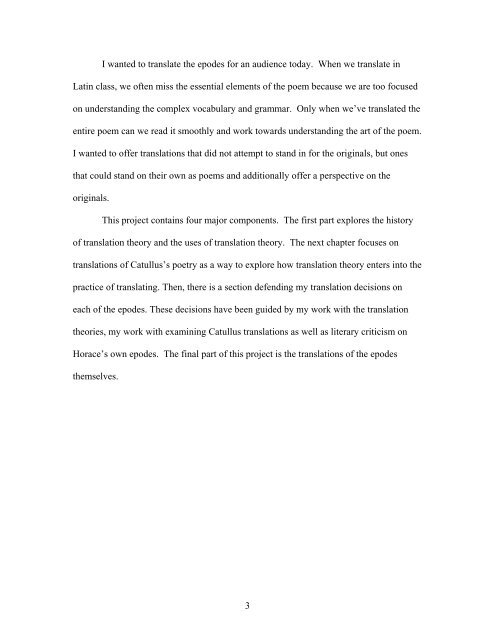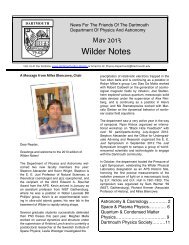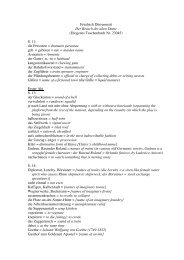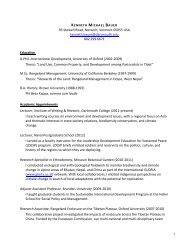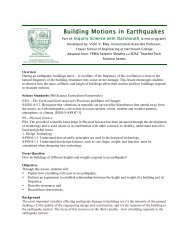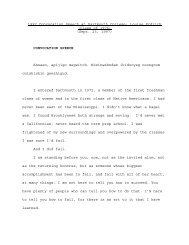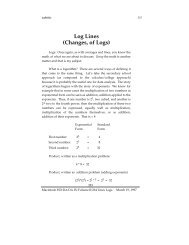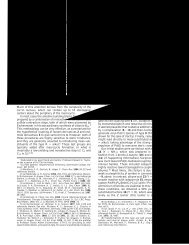A Log Cabin Out of Stone: - Dartmouth College
A Log Cabin Out of Stone: - Dartmouth College
A Log Cabin Out of Stone: - Dartmouth College
You also want an ePaper? Increase the reach of your titles
YUMPU automatically turns print PDFs into web optimized ePapers that Google loves.
I wanted to translate the epodes for an audience today. When we translate in<br />
Latin class, we <strong>of</strong>ten miss the essential elements <strong>of</strong> the poem because we are too focused<br />
on understanding the complex vocabulary and grammar. Only when we’ve translated the<br />
entire poem can we read it smoothly and work towards understanding the art <strong>of</strong> the poem.<br />
I wanted to <strong>of</strong>fer translations that did not attempt to stand in for the originals, but ones<br />
that could stand on their own as poems and additionally <strong>of</strong>fer a perspective on the<br />
originals.<br />
This project contains four major components. The first part explores the history<br />
<strong>of</strong> translation theory and the uses <strong>of</strong> translation theory. The next chapter focuses on<br />
translations <strong>of</strong> Catullus’s poetry as a way to explore how translation theory enters into the<br />
practice <strong>of</strong> translating. Then, there is a section defending my translation decisions on<br />
each <strong>of</strong> the epodes. These decisions have been guided by my work with the translation<br />
theories, my work with examining Catullus translations as well as literary criticism on<br />
Horace’s own epodes. The final part <strong>of</strong> this project is the translations <strong>of</strong> the epodes<br />
themselves.<br />
3


